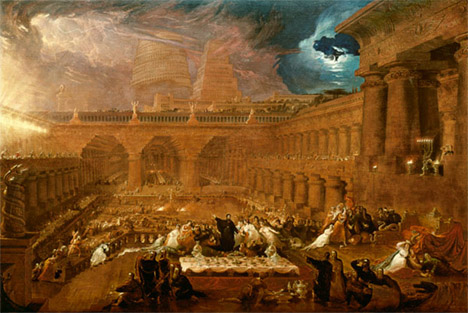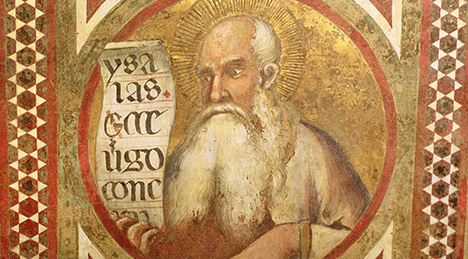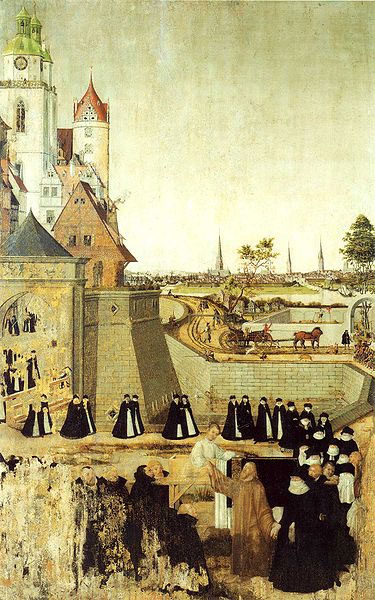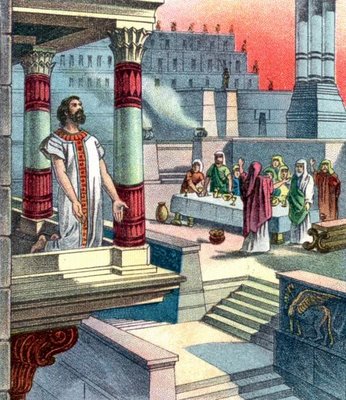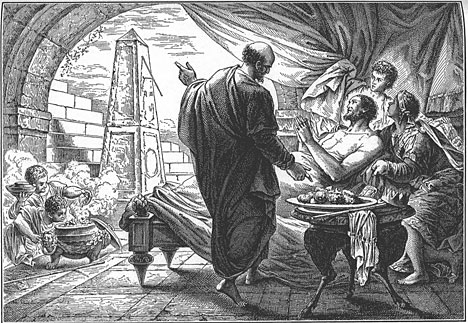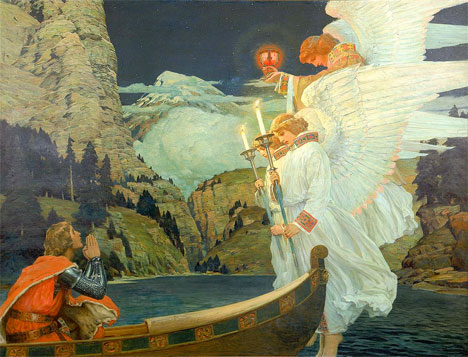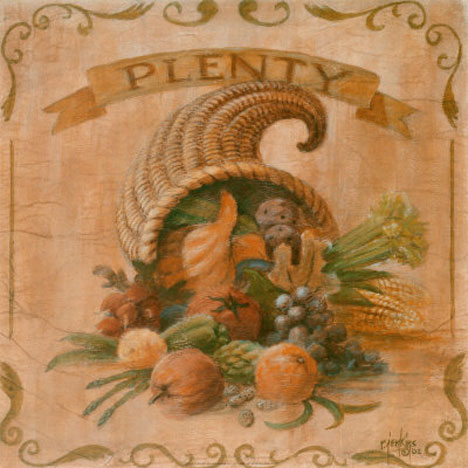“The Forbidden Chapter” in the Tanakh
“The Forbidden Chapter” in the Tanakh
Did you know that there’s a “forbidden chapter” in the Tanakh (Hebrew Bible)? What’s been hidden from us all these years? It’s changed the lives of hundreds of thousands of Jewish people! Watch till the end for a surprising twist!Posted by Medabrim in English on Friday, July 24, 2015
One Isaiah
The Death of Deutero- and Trito-Isaiah
The heart of typology is representation, and representation is the heart of sacrifice.
A great deal of so-called theology seems to me to be a waste of time, breath and ink. Theologians and commentators insist on applying a “lens” to Scripture, or building a case from cherry-picked particulars or accumulations of fragmented data, when the answer to the debated question is staring right back at them. Literary structure should be the first recourse, not the last. When it comes to the Bible, literary structure is the label on the tin.
The Meekest Man
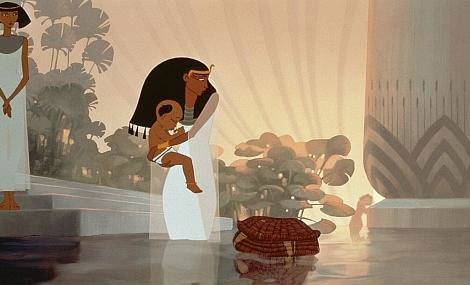 “When Moses slew the Egyptian, he was doing the will of God but not with the power of God.”
“When Moses slew the Egyptian, he was doing the will of God but not with the power of God.”
Numbers 12:3 says that Moses was the meekest man “on the face of the ground [adamah].”
Psalm 37:11 says the meek will inherit the Land [eretz] and delight in abundant prosperity.
Isaiah 11:4 says that
with righteousness [God] shall judge the poor,
and decide with equity for the meek of the Land;
and he shall strike the Land with the rod of his mouth,
and with the breath of his lips she shall kill the wicked.
Firstly, what is meekness? And secondly, why is it connected to “face of the ground” (Adam), or Land?
This post has been slain and resurrected for inclusion in my 2015 book of essays, Inquietude.
Snakes and Chains
 “When Paul had gathered a bundle of sticks and put them on the fire, a viper came out because of the heat and fastened on his hand.” (Acts 28:3)
“When Paul had gathered a bundle of sticks and put them on the fire, a viper came out because of the heat and fastened on his hand.” (Acts 28:3)
One interesting facet of biblical symbols is their identification by “use” and “motion.” Objects that have no link in the natural order of things can be tied together through their use in a similar purpose in the work of the house of God. This is not entirely strange. Diverse things which have no relationship in the natural order are brought together by man for use in “housework.” For the Author of the Bible, nature is “plastic.” This factor is one reason why the Bible is strange to modern ears and minds.
[This post has been refined and included in Sweet Counsel: Essays to Brighten the Eyes.]
Continue reading
Do Not Weep
The Unexpected Luck of Widows’ Sons
A guest post by Luke Welch.
I’ve been reading The Hobbit again, out loud, to our children, and this time through, one phrase in the first chapter caught my attention.
Sins Corporate and Individual
Another gem from Tim Nichols:
Consider Daniel 9, the prayer of the just man Daniel. Go ahead and read it; I’ll wait.
Did you notice that Daniel identifies fully with his people? “We have not obeyed the voice of the Lord our God, to walk in His laws,” he says — although Daniel himself did, in fact, keep them. “We have not made our prayer before the Lord our God” — although Daniel did so daily, even at risk of his life. “Neither have we heeded your servants the prophets,” he says — although he himself was a close student of the prophets, especially Jeremiah.
If I Could Turn Back Time
or Raising Up the Temple
An analysis of the literary structure of Day 5 of Creation and passages that are apparently parallel.
Continue reading
Strong Delusion
or Goblet of Fire
“And the times of this ignorance God winked at;
but now commandeth all men every where to repent…” Acts 17:30
Reading the Bible without an understanding of Creational and Covenant structures is like watching test cricket without knowing the rules. It’s not unusual for even the best commentators to be distracted by something as inconsequential as a lost seagull. But every moment is part of a bigger picture. Isaiah can seem tedious at times, but it’s a long game. Let’s look at Isaiah 4:2-6, which relates the purging of exiled Israel to the jealous inspection in Numbers 5. In this case, she comes up trumps.
Being Cornucopia
The Table on God’s Mountain
“Most assuredly, I say to you,
unless a grain of wheat
falls into the ground
and dies,
it remains alone;
but if it dies,
it produces much grain.”
John 12:24
Israel was given a “firstfruits” taste of the Promised Land in Numbers 13. As with all Covenants, it was bittersweet. There were grapes, but there were giants. It was the same challenge as the one given to Adam. They were called to be judges who made their decisions based not on sight, but on faith in God’s Words.
Continue reading
